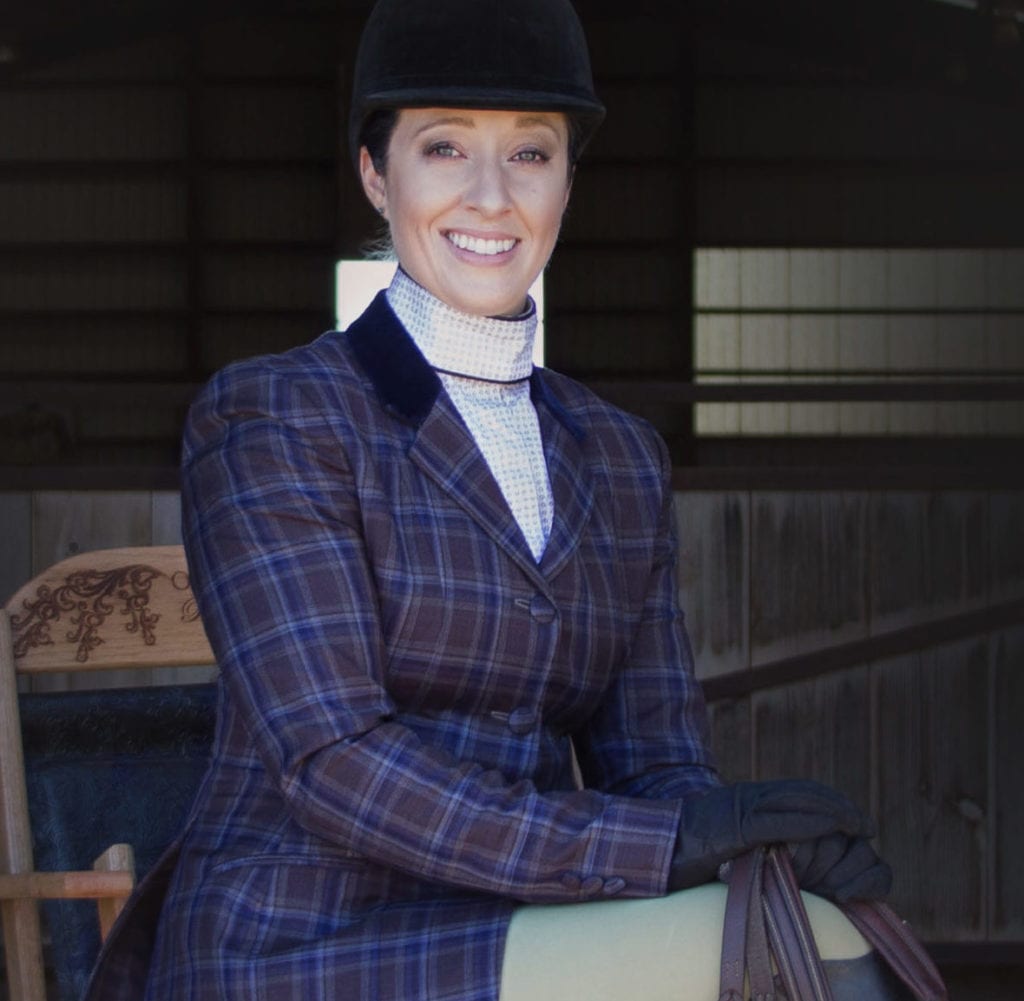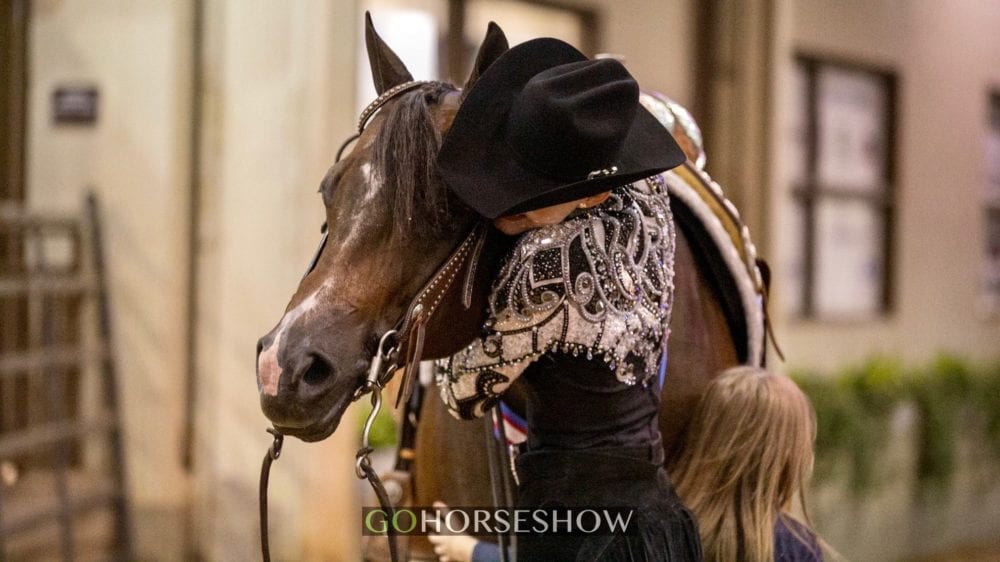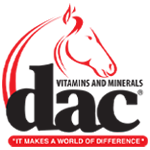As the 2021 show season moves into full swing, trainers and exhibitors are beginning to plan their schedules for the spring and summer, and many of them intend to attend a different event each weekend. Traveling from show to show can be exhausting for everyone involved, but it is particularly hard on our equine partners.
These horses give us their all every weekend, so it is only right that they receive the best treatment to keep them comfortable throughout the show season’s demands in return.
GoHorseShow had the opportunity to speak to Dr. “Bimbo” Welker of Welker Veterinary Services in Marysville, Ohio, and AQHA Professional Horsewoman Alyse Roberts of Purcell, Oklahoma, about techniques to maintain the comfort of your equine partners throughout a long campaign.
From a vet’s perspective:
Dr. Welker, who practiced at The OSU Large Animal Services ambulatory clinic for 28 years before starting his practice, told us that during the show season, “The thing that is ‘wear and tear’ on a horse is the travel more than anything.” Spending increased amounts of time in the trailer will increase a horse’s physical needs, particularly when it comes to nutrition.
 “These horses need to be fed differently,” Welker said. “When you take a horse and put him on the road and work him frequently, then you have to take into consideration the nutrition requirements to keep him up and strong.”
“These horses need to be fed differently,” Welker said. “When you take a horse and put him on the road and work him frequently, then you have to take into consideration the nutrition requirements to keep him up and strong.”
Welker explained that most people overlook travel’s specific aspects that may result in their equine partner’s discomfort. For example, he says that one mistake people often make when traveling from show-to-show, mostly long-distance, is not stopping to let their horse rest.
Besides taking extra precautions to ensure your horse’s comfort while hauling down the road, Welker encourages attention to three main signs that may point to discomfort: lameness issues, signs of colic, and respiratory changes.
Welker says, “You need to learn when you’re at the shows to look for things that are indicative of soreness,” as well as to identify “colicky signs,” which may arise as a result in decreased water intake by the horse due to either a long trailer ride with few stops or a change in taste that deters the horse from drinking. If a horse is eating more but drinking less as they often do at shows, they will be more susceptible to impaction colic.
Lastly, Dr. Welker encouraged individuals to “get in the habit of looking at a horse’s respiratory rates and making sure that they are not any heavier than usual.” Changes in respiratory rates of a horse are an obvious sign of discomfort and can arise from a variety of reasons.
Welker explained, “A mistake people make that can lead to these kinds of issues is feeding hay, or even grain in a trailer to occupy their time. The problem here is that with the vents open, it can blow up into their nostrils and cause problems.”
When traveling from show to show, an immense amount of stress is put on a horse, often from things we don’t realize may contribute to it. Paying close attention and being more diligent in our practices, while on the way to and at shows, will help maintain our horse’s comfort.
From a trainer’s perspective:
 Alyse Roberts of Alyse Roberts Performance Horses explained that the showing in itself is “demanding on all of them, whether they’re futurity horses or older horses who do the all-around.”
Alyse Roberts of Alyse Roberts Performance Horses explained that the showing in itself is “demanding on all of them, whether they’re futurity horses or older horses who do the all-around.”
Show horses, both at a young age and a mature age, are asked to consistently perform at the top of their ability during show season. To any athlete, always performing at the highest level can be taxing, particularly to our horses.
Roberts agreed with Dr. Welker, stating, “Going up and down the road, all the time is absolutely added stress to them.” She advised being sure you take extra care when hauling to and from shows to avoid the discomfort that stems from the trailer.
When it comes to identifying discomfort in a horse, Roberts explained, “I feel like if you know a horse, they can tell you. I look for soreness, or if their legs are starting to get puffy, and just their overall attitude, if they’re getting grouchy, or pinny-eared, things like that.”
The stress that comes from traveling and competing consistently can also give way to ulcers, which Roberts says she always treats her horses for during shows.
How should an exhibitor go about counteracting or preventing these signs? Roberts told us, “At home, I’m a big believer in turn-out. All of my horses get turned-out. I think it is a huge part of keeping them happy.”
Alyse added that making sure her horses have hay in front of them throughout the day is one technique that can help keep a horse more comfortable at shows. “Mine have hay 24/7,” she said. “Whether we’re at a show or home, we have grass hay, so mine are always munching throughout the day, and I think that helps keep their stomachs happy.”
She explained other specific techniques that can be used to maintain a horse’s physical comfort, such as ponying your horse instead of working them on a longe-line for extended periods or using “different types of wrapping, like poultice or sweat.” As far as wrapping goes, Roberts said, “I like the Back-on-Track wraps, I wrap a lot with those.”
One technique that Roberts uses to keep her horses comfortable, which she spoke highly of, is MagnaWave technology. “I’m a huge believer,” she said of the electromagnetic pulse therapy. “I feel like they help for overall soreness, muscles, ligaments, and stuff like that.”
Horse showing would not be possible without our equine athletes. We ask so much of them at the shows, and they never hesitate to give their best effort. Ensuring their comfort as we chase wins, points, and titles with them is the least we can do in return. Using these techniques will help make sure that your horse is the best version of itself every time you trot into the arena or step up to the cone.







